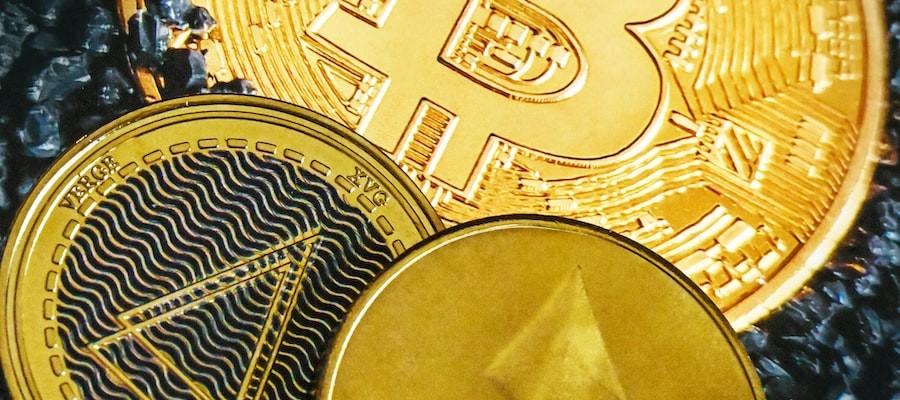DeFi News: Latest Developments in Decentralized Finance
The world of decentralized finance or DeFi is constantly evolving. In recent times, it has gained mainstream attention and is being seen as the future of finance. DeFi refers to a system of financial applications built on top of blockchain networks like Ethereum that operate autonomously and without intermediaries. In this article, we will discuss the latest DeFi news and developments shaping the industry.
The Rise of DeFi
Decentralized finance has been gaining traction rapidly and it can be seen in the rise of total value locked (TVL) in DeFi protocols. As of May 2021, the TVL in DeFi protocols stands at around 83 billion USD. This represents how much capital is being deployed in various DeFi applications such as lending, borrowing, and trading.
With the rise of DeFi applications, several new players have entered the market. Notably, billionaires such as Mark Cuban and Elon Musk are investing in DeFi protocols. This not only validates the potential of these platforms but also brings further attention to the industry.
The Challenges of DeFi
Despite the potential of DeFi, there are still a few key challenges that the industry needs to overcome. One of the primary challenges is the issue of scalability. Most DeFi applications are currently built on the Ethereum blockchain, which has limited throughput. This leads to network congestion and high transaction fees. To combat this, several layer-2 scaling solutions are being developed such as Polygon and Optimism.
Another challenge faced by DeFi protocols is security. Since DeFi applications operate on decentralized networks, they are vulnerable to smart contract bugs and other malicious attacks. As a result, several DeFi protocols have been hacked, leading to significant losses. However, the industry is evolving and new security measures are being implemented to improve the safety of DeFi platforms.
The Latest in DeFi News
Let’s take a look at some of the latest DeFi news:
1. DeFi Protocol Aave Launches Liquidity Mining Program
Leading DeFi lending platform Aave recently launched a liquidity mining program, offering incentives to users who deposit liquidity into the platform. The program aims to increase liquidity on the Aave platform and improve the efficiency of its protocol.
2. Solana Emerges as a Competitor to Ethereum
Solana, a blockchain network that offers fast and cheap transactions, is emerging as a competitor to Ethereum. Its low transaction fees and high throughput have made it attractive to DeFi developers and users alike. Several DeFi applications have already migrated to the Solana network.
3. Visa Enters the DeFi Space
Visa, one of the world’s largest payment networks, recently announced its entry into the DeFi space. It partnered with the Crypto.com platform to offer cryptocurrency-backed debit cards that can be used at more than 70 million merchants worldwide. This move is seen as a significant step in bringing DeFi to mainstream audiences.
Conclusion
DeFi is a rapidly evolving industry with several exciting developments. As more people discover the potential of this new financial system, we can expect further growth and innovation in the DeFi space. However, the industry still faces several challenges that need to be addressed for it to reach its full potential.
Frequently Asked Questions
1. What is DeFi?
DeFi refers to a system of financial applications built on top of blockchain networks like Ethereum that operate autonomously and without intermediaries.
2. What are the benefits of using DeFi?
DeFi offers several benefits such as greater transparency, faster and cheaper transactions, and greater control over financial assets.
3. What are the challenges faced by DeFi?
Some of the primary challenges faced by DeFi include scalability, security, and regulatory uncertainity.
4. Are DeFi applications safe?
While DeFi applications operate on decentralized networks, they are still vulnerable to smart contract bugs and other malicious attacks. However, several security measures are being implemented to improve the safety of these platforms.
5. How can I invest in DeFi?
You can invest in DeFi by buying cryptocurrencies such as Ethereum, which is the primary blockchain network on which most DeFi applications are built.
6. What is liquidity mining?
Liquidity mining is a program offered by some DeFi platforms that offers incentives to users who deposit liquidity into the platform. These incentives can be in the form of tokens, which can be used to access other services on the platform.
7. How does DeFi differ from traditional finance?
DeFi operates without intermediaries, is open and transparent, and offers greater control to the users over their financial assets. Traditional finance is centralized, more regulated, and operates through intermediaries like banks and financial institutions.
8. What is TVL?
TVL or total value locked refers to the amount of capital that is being deployed in various DeFi applications such as lending, borrowing, and trading.
9. What is Solana?
Solana is a blockchain network that offers fast and cheap transactions, making it an attractive alternative to Ethereum for DeFi developers and users.
10. What is the future of DeFi?
The future of DeFi is bright, with more people becoming aware of its potential and technological advancements being made to overcome its current challenges. The industry is expected to attract more investment and innovation in the coming years.




